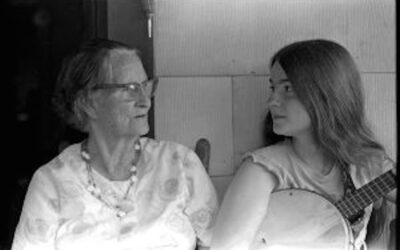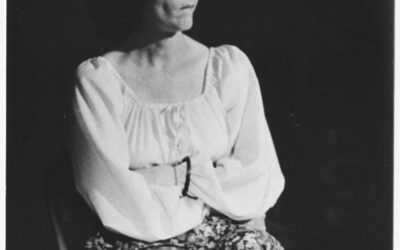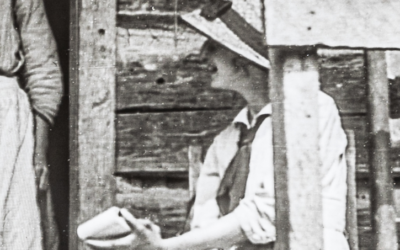Willie Sievers was part of a family band with her father William “Fiddlin’ Bill” Sievers and her brother Mack. Known as the Tennessee Ramblers, they performed live and on radio in the 1920s and 1930s. In 1928 they recorded for Brunswick in Ashland, Kentucky, followed by putting down several sides in 1929 at the Brunswick-Vocalion sessions in Knoxville, including “Garbage Can Blues” and “Hawaiian Melody.”
Willie played guitar in the band, and when the Tennessee Ramblers were featured in Brunswick’s American Folk Songs catalog, she was described as follows:
“…Right this way for the Girl Guitar-Playing wonder of the world. Plays with the guitar held behind her – plays the instrument with her feet. Right this way to hear Willie Sievers – Champion Woman Guitarist of the World!”
After the Tennessee Ramblers disbanded in the 1950s following Bill Sievers’ death, Willie and Mack formed a new band called Mack’s Novelty Hawaiians, primarily playing Hawaiian-style music. Today Willie’s guitar playing – characterized by a fierce rhythm that drove the music forward – is highly valued.




